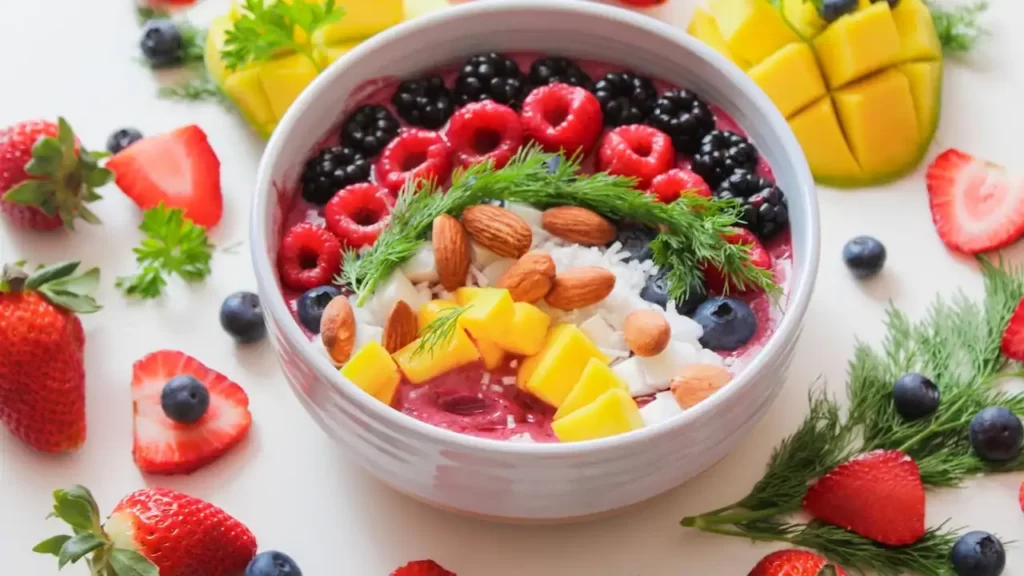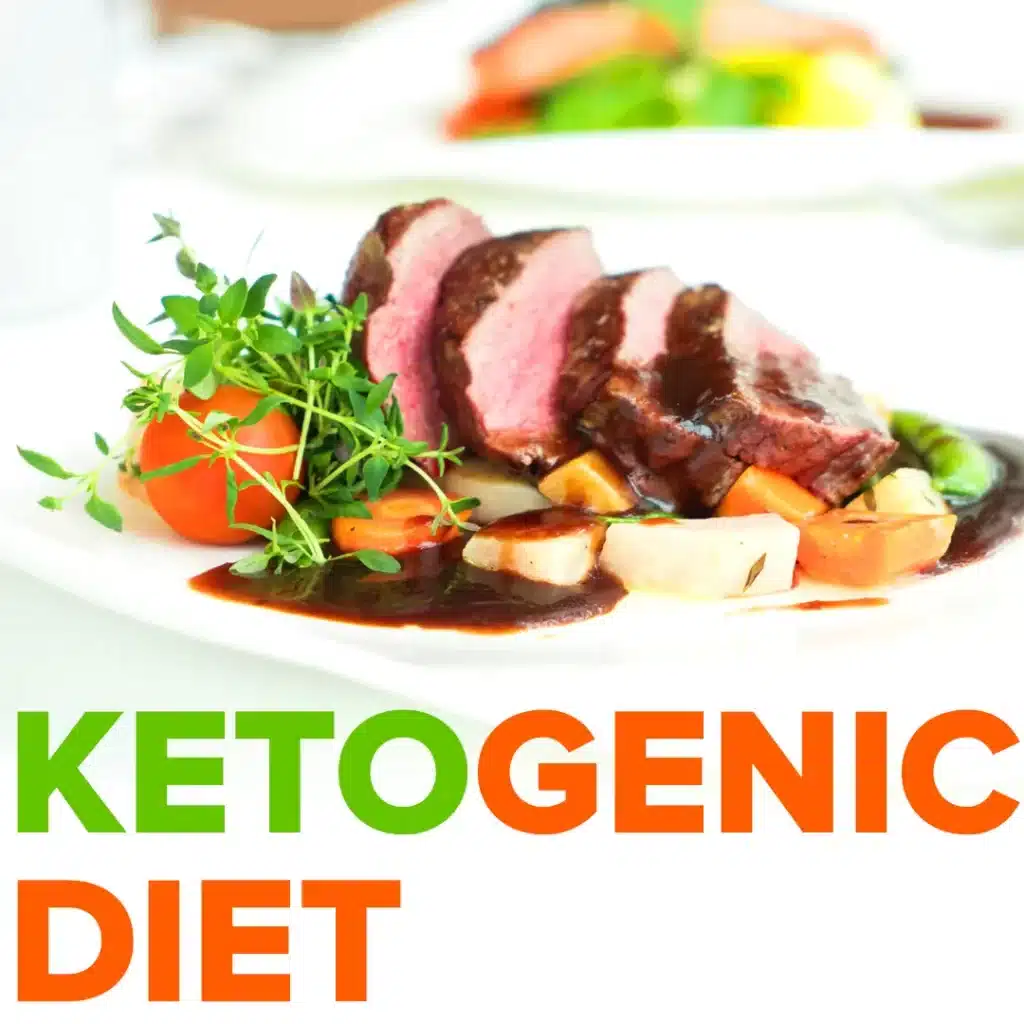Unhealthy Breakfast Options have long been a tempting but less-than-optimal way to kickstart our mornings. In this article, we delve into a much-needed transformation as we unveil the “5 Best Nutrient-Rich Alternatives Over Unhealthy Breakfast Options.” From sugary cereals to high-calorie pastries, we explore healthier choices that not only satisfy our taste buds but also nourish our bodies.
Discover how simple swaps to whole-grain goodness, protein-rich alternatives, and nature’s bounty can revolutionize the way we begin our day. Join us on this journey of revitalizing breakfast habits and embracing vitality through smarter, more wholesome choices.
1. Sugary Cereals: A Sweet Trap for Your Health

Sugary cereals are a common breakfast choice, particularly among children, due to their colorful packaging, fun shapes, and sweet taste. However, these cereals often contain high levels of added sugars, which can have negative effects on your health.
Wellness on Your Plate: Transforming Unhealthy Breakfast Habits with Smart Choices
Why Sugary Cereals are Unhealthy:
Blood Sugar Spikes: Sugary cereals are primarily made from refined grains, which are quickly digested and cause rapid spikes in blood sugar levels. These spikes are followed by crashes in energy, leaving you hungry and fatigued shortly after eating.
Weight Gain: Excessive sugar intake can contribute to weight gain. The high sugar content in these cereals can lead to increased calorie consumption without providing essential nutrients or promoting satiety.
Increased Risk of Chronic Diseases: Regular consumption of sugary cereals has been linked to an increased risk of type 2 diabetes, heart disease, and obesity. Diets high in added sugars can lead to insulin resistance and inflammation, both of which are associated with these chronic conditions.
Proof and Research:
A study published in the Journal of the Academy of Nutrition and Dietetics conducted an analysis of children’s cereals. The research found that these cereals contained, on average, 40% more sugars by weight compared to other cereals. This excess sugar intake, especially at the start of the day, can contribute to unhealthy eating habits and metabolic issues.
The American Heart Association recommends limiting added sugar intake to no more than 25 grams (about 6 teaspoons) per day for women and 36 grams (about 9 teaspoons) per day for men. Many sugary cereals can contain more than this recommended daily limit in just one serving.
Healthier Alternatives:

Opting for healthier breakfast alternatives can help you avoid the pitfalls of sugary cereals. Consider these options:
Whole Grain Cereals: Look for cereals made from whole grains, such as oats, quinoa, or bran. These cereals are higher in fiber and nutrients, providing sustained energy and promoting better digestion.
Homemade Granola: Prepare your own granola using whole oats, nuts, seeds, and a touch of natural sweeteners like honey or maple syrup. This way, you can control the sugar content and choose nutrient-dense ingredients.
Fresh Fruits: Top plain yogurt or whole-grain cereal with fresh fruits like berries, bananas, or sliced apples. This adds natural sweetness along with vitamins, minerals, and dietary fiber.
In conclusion, sugary cereals might offer a quick and convenient breakfast option, but their high sugar content and lack of nutritional value make them an unhealthy choice in the long run. Opting for whole, minimally processed breakfast foods will help stabilize your energy levels, support your overall health, and reduce the risk of chronic diseases associated with excessive sugar consumption.
2. Breakfast Pastries: A Delightful Disguise for Unhealthiness

Pastries like croissants, Danish pastries, and muffins are delicious but typically high in refined flour, unhealthy fats, and added sugars. All these are Unhealthy Breakfast Options. They offer little to no nutritional value and can contribute to weight gain and increased risk of chronic diseases.
Why Pastries are Unhealthy:
Refined Flour: Breakfast pastries are usually made from refined flour, which has been stripped of its bran and germ, removing essential nutrients and dietary fiber. This results in a carbohydrate-heavy product that can cause rapid spikes in blood sugar levels.
Unhealthy Fats: Many pastries are made with unhealthy fats, such as butter or shortening. These fats are high in saturated and trans fats, which can contribute to increased levels of “bad” LDL cholesterol and raise the risk of heart disease.
Added Sugars: To enhance flavor, many breakfast pastries contain added sugars. These added sugars contribute extra calories without providing any significant nutritional value.
Proof and Research:
The American Journal of Clinical Nutrition published research emphasizing the negative effects of diets high in refined carbohydrates and added sugars. Such diets are associated with a higher risk of obesity, insulin resistance, and cardiovascular diseases.
The American Heart Association recommends limiting saturated fat intake to no more than 5-6% of total daily calories. Breakfast pastries, due to their buttery and fatty nature, can easily contribute to exceeding this limit.
Healthier Alternative to Breakfast Pastries: Nutrient-Rich Whole-Grain Options

Opting for nutrient-rich whole-grain breakfast options is a healthier alternative to indulging in breakfast pastries. These alternatives provide sustained energy and essential nutrients without the drawbacks of excessive sugars and unhealthy fats.
Why Whole-Grain Options are Healthier:
Higher Nutritional Value: Whole-grain breakfast choices offer a richer array of vitamins, minerals, and dietary fiber compared to pastries, which often lack essential nutrients.
Steady Energy Release: Whole grains provide complex carbohydrates that result in a gradual and sustained release of energy, avoiding the energy spikes and crashes associated with pastries.
Improved Satiety: The fiber content in whole grains promotes a feeling of fullness, reducing the likelihood of overeating later in the day.
Heart Health: Whole grains contribute to heart health by helping to lower cholesterol levels and supporting overall cardiovascular well-being.
Proof and Research:
Nutrient Density: Research published in the Journal of Nutrition and Metabolism underscores the superior nutrient density of whole grains, highlighting their beneficial impact on overall health.
Glycemic Response: A study in the American Journal of Clinical Nutrition found that whole grains have a lower glycemic index than refined grains, leading to improved blood sugar control and energy levels.
Cardiovascular Benefits: According to the American Heart Association, consuming whole grains is associated with a reduced risk of heart disease due to their positive effects on cholesterol levels and blood pressure.
Healthier Whole-Grain Breakfast Options:
Oatmeal: A warm bowl of oatmeal made from whole oats provides complex carbohydrates, fiber, and various vitamins.
Whole-Grain Toast: Opt for whole-grain bread topped with avocado, eggs, or nut butter for a balanced and satisfying breakfast.
Quinoa Breakfast Bowl: Quinoa offers complete protein and nutrients, making it an excellent base for a nourishing breakfast bowl.
Greek Yogurt Parfait: Layer Greek yogurt with whole-grain granola and fresh fruits for a protein-packed and fiber-rich option.
By choosing whole-grain breakfast options, you prioritize your health and well-being, enjoying sustained energy and a wealth of nutrients. These alternatives serve as a delicious and satisfying start to your day while promoting overall vitality.
3. Flavored Yogurt: Not So Innocent Health Claims

Flavored yogurt may seem like a health-conscious choice, but many commercial varieties are laden with added sugars and artificial additives.
Why Flavored Yogurt is Unhealthy:
Hidden Sugars: Flavored yogurts often contain added sugars to enhance the taste. These added sugars can contribute to weight gain, increased blood sugar levels, and dental issues.
Low Nutritional Value: The process of flavoring yogurt can reduce its nutritional content. Additionally, the beneficial probiotics and protein in yogurt can be overshadowed by the high sugar content in flavored versions.
Proof and Research:
The journal Nutrients published a study that highlighted the sugar content in flavored yogurts. Many flavored yogurts were found to contain as much sugar as sugary desserts, compromising their potential health benefits.
A healthier alternative to flavored yogurt is plain Greek yogurt. Here’s why:
Healthier Alternative: Plain Greek Yogurt

Plain Greek yogurt is a nutritious and versatile alternative to flavored yogurt. It offers numerous health benefits without the downsides of added sugars and artificial additives found in flavored varieties.
Why Plain Greek Yogurt is Healthier:
Protein-Rich: Greek yogurt is higher in protein compared to regular yogurt, making it a satisfying option that helps keep you full and supports muscle health.
Probiotics: Like flavored yogurt, Greek yogurt contains beneficial probiotics that support gut health and digestion.
Less Sugar: Opting for plain Greek yogurt allows you to control the sugar content. It contains natural sugars from lactose but without the excessive added sugars found in flavored yogurts.
Nutrient-Dense: Greek yogurt is a good source of calcium, potassium, and vitamins like B12. It provides essential nutrients without unnecessary calories from added sugars.
How to Enjoy Plain Greek Yogurt:
Add Fresh Fruits: Enhance the natural sweetness of Greek yogurt by adding fresh fruits like berries, sliced bananas, or diced apples. These fruits provide fiber, vitamins, and minerals.
Drizzle Honey or Maple Syrup: If you prefer a touch of sweetness, consider adding a drizzle of natural sweeteners like honey or maple syrup. Use them sparingly to keep sugar content in check.
Mix in Nuts and Seeds: Boost the nutritional value by mixing in nuts, seeds, and a sprinkle of granola. This adds healthy fats, protein, and crunch.
Create Parfaits: Layer Greek yogurt with fruits, nuts, and a small amount of whole-grain granola to create a delicious and visually appealing parfait.
Blend into Smoothies: Use plain Greek yogurt as a base for your homemade smoothies. Its creamy texture adds thickness and protein to your drinks.
Proof and Research On Plain Greek Yogurt :
Research published in the journal Nutrients acknowledges the health benefits of plain Greek yogurt, highlighting its protein content and probiotic properties.
The American Heart Association suggests choosing plain or low-fat Greek yogurt over flavored varieties to reduce added sugar intake.
By choosing plain Greek yogurt and adding natural toppings, you create a customizable and nutrient-rich breakfast option that supports your health and well-being.
4. Breakfast Smoothies from Stores: Bottled Convenience, Hidden Dangers

Store-bought smoothies can seem like a nutritious option, but they may contain excessive calories, added sugars, and lack fiber. Some can even have more sugar than a can of soda.
Why Smoothies from Stores are Unhealthy:
High Calories and Sugars: Some store-bought smoothies can contain excessive calories and added sugars, potentially leading to weight gain and blood sugar spikes.
Lack of Fiber: Many smoothies lack the dietary fiber found in whole fruits and vegetables. Fiber is crucial for digestion, satiety, and blood sugar control.
Proof and Research:
The British Medical Association published a report indicating that certain store-bought smoothies can contain significant amounts of added sugars, exceeding the daily recommended limits and contributing to health issues.
A healthier alternative to store-bought smoothies is making your own homemade smoothies. Here’s why:

Healthier Alternative: Homemade Smoothies
Making your own homemade smoothies gives you full control over the ingredients, allowing you to create a nutritious and balanced option without the excessive calories and added sugars often found in store-bought versions.
Why Homemade Smoothies are Healthier:
Controlled Ingredients: When making your own smoothies, you can choose nutrient-rich ingredients, such as whole fruits, vegetables, and quality protein sources, while minimizing or avoiding added sugars.
No Artificial Additives: Homemade smoothies don’t contain artificial additives, colors, or preservatives that are often found in store-bought options.
More Fiber: By including whole fruits and vegetables, you increase the fiber content of your smoothie, which supports digestion, satiety, and stable blood sugar levels.
Personalized Nutrition: You can tailor your homemade smoothies to your specific dietary needs and preferences, ensuring they align with your health goals.
How to Make Homemade Smoothies:
Choose a Base: Start with a liquid base like water, unsweetened almond milk, coconut water, or plain yogurt.
Add Fruits and Vegetables: Include a variety of fresh or frozen fruits and vegetables. Berries, bananas, spinach, kale, and avocado are excellent choices.
Include Protein: Add a protein source such as plain Greek yogurt, unsweetened protein powder, or nut butter. Protein helps with satiety and muscle recovery.
Healthy Fats: Include sources of healthy fats like chia seeds, flaxseeds, or a small number of nuts or avocados. These fats contribute to a well-rounded and satisfying smoothie.
Natural Sweeteners: If desired, use natural sweeteners like honey, maple syrup, or dates in moderation to add sweetness without excessive added sugars.
Proof and Research:
The benefits of homemade smoothies are based on common nutritional knowledge. By using whole, minimally processed ingredients, you ensure that your smoothies are nutrient-dense and free from unhealthy additives.
Various health and nutrition experts advocate for homemade smoothies as a way to increase nutrient intake, control sugar content, and enjoy personalized nutrition.
By creating your own homemade smoothies, you can enjoy a delicious and healthful breakfast option that supports your overall well-being. Plus, the creative freedom to experiment with different ingredients and flavors makes the process enjoyable and satisfying.
5. Processed Breakfast Meats: A Heart-Unfriendly Start

Bacon, sausages, and other processed meats are high in saturated fats, sodium, and often preservatives. Regular consumption is associated with an increased risk of heart disease, type 2 diabetes, and certain cancers.
Why Processed Breakfast Meats Are Unhealthy:
Saturated Fats: Processed meats are often high in saturated fats, which can raise “bad” LDL cholesterol levels and increase the risk of heart disease.
Sodium Content: Processed breakfast meats are also notorious for their high sodium content, which can contribute to high blood pressure and other cardiovascular issues.
Proof and Research:
The World Health Organization classifies processed meats as Group 1 carcinogens due to their link with colorectal cancer. Regular consumption of these meats can lead to various health problems.
A healthier alternative to processed breakfast meats is opting for lean sources of protein. Here’s why:
Healthier Alternative: Lean Protein Sources
Instead of consuming processed breakfast meats like bacon and sausages, consider incorporating lean sources of protein into your breakfast. These alternatives offer essential nutrients without the saturated fats and preservatives found in processed meats.
Why Lean Protein Sources Are Healthier:
Lower in Saturated Fat: Lean protein sources, such as poultry, fish, eggs, and plant-based options, contain less saturated fat compared to processed meats. This helps lower the risk of heart disease.
Essential Nutrients: Lean protein sources provide important nutrients such as protein, vitamins, and minerals that contribute to muscle health, energy, and overall well-being.
Reduced Sodium: Processed breakfast meats are often high in sodium, which can contribute to high blood pressure. Choosing lean proteins allows you to control your sodium intake.
Healthier Lean Protein Alternatives:

Eggs: Eggs are a versatile protein source that can be prepared in various ways, such as boiled, scrambled, or as an omelet. They provide essential amino acids and nutrients like vitamin D.
Turkey Bacon or Turkey Sausage: If you enjoy the flavors of bacon or sausage, opt for leaner alternatives made from turkey. These options generally have less saturated fat.
Chicken or Turkey Breast: Grilled or baked chicken or turkey breast is a lean protein option rich in protein, B vitamins, and minerals.
Fish: Fatty fish like salmon, mackerel, and trout are excellent sources of omega-3 fatty acids, which are beneficial for heart health and brain function.
Plant-Based Proteins: Incorporate plant-based protein sources such as beans, lentils, tofu, or tempeh into your breakfast for a nutrient-rich option.
Proof and Research:
The American Heart Association recommends choosing lean protein sources like poultry, fish, and plant-based options to reduce saturated fat intake and promote heart health.
Research published in various journals, including the American Journal of Clinical Nutrition and the Journal of the American College of Cardiology, highlights the benefits of consuming lean protein sources as part of a balanced diet.
By selecting lean protein sources for your breakfast, you promote overall health and well-being while reducing the risks associated with consuming processed breakfast meats. These alternatives offer a variety of flavors and nutrients that can contribute to a satisfying and nutritious morning meal.
Conclusion:
The path to a healthier breakfast is paved with conscious choices that prioritize nourishment and vitality. As we’ve explored the various Unhealthy Breakfast Options and their potential pitfalls, we’ve also illuminated a roadmap to better mornings.
By embracing nutrient-rich alternatives, we empower ourselves to make wiser decisions that fuel our bodies with essential goodness. From opting for whole grains to savoring plain Greek yogurt’s natural richness, we’ve uncovered alternatives that not only energize but also promote well-being.
It’s time to bid farewell to the allure of excess sugars, unhealthy fats, and processed delights. Let’s embark on a journey of transformation, crafting breakfasts that invigorate our bodies and set the tone for vibrant days ahead. Remember, every morning presents an opportunity to nourish, uplift, and embrace a healthier lifestyle.
FAQ’s
1. What is the most nutrient-rich food?
A. Spinach is considered one of the most nutrient-rich foods. It’s loaded with vitamins, minerals, and antioxidants like vitamin K, vitamin A, folate, iron, and fiber. Incorporating spinach into your diet can contribute to overall health, from supporting bone health to promoting healthy digestion and managing blood sugar levels.
2. What are nutrient alternatives?
A. Nutrient alternatives refer to food options that offer similar or higher levels of essential vitamins, minerals, and other beneficial compounds compared to the original choice. These alternatives provide a way to enhance nutritional intake while avoiding the potential downsides of less nutritious options. For example, choosing whole grains over refined grains or opting for fresh fruits instead of sugary snacks are nutrient alternatives that support better health.
3. Which food has all nutrients?
A. No single food contains all the nutrients required for optimal health. A balanced diet that includes a variety of foods is essential to obtain the full spectrum of vitamins, minerals, proteins, fats, and carbohydrates that our bodies need. Incorporating diverse fruits, vegetables, whole grains, lean proteins, and healthy fats helps ensure a comprehensive nutrient intake.
4. What food has the most protein?
A. Animal-based foods like lean meats, poultry, fish, eggs, and dairy products are some of the richest sources of protein. Additionally, plant-based sources like legumes (beans, lentils, chickpeas), tofu, tempeh, quinoa, and nuts also provide significant protein content. Incorporating a variety of these foods into your diet can help you meet your protein needs.
5. Which food has all nutrients?
A. No single food can provide all the nutrients needed for complete nutrition. A well-rounded diet that includes a variety of foods such as fruits, vegetables, whole grains, lean proteins, and healthy fats is essential to obtain the full range of vitamins, minerals, proteins, and other nutrients required for optimal health and well-being.




